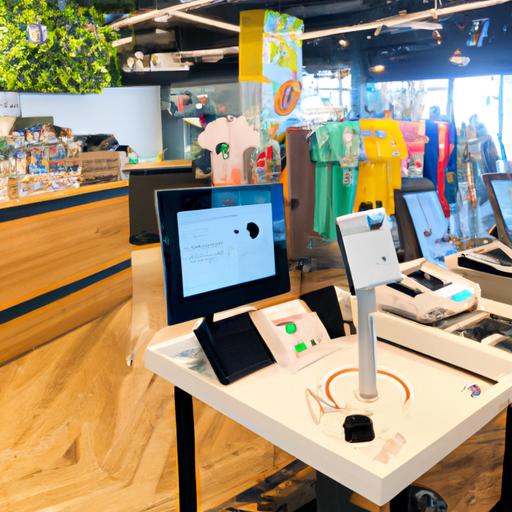Introduction
In today’s fast-paced retail landscape, staying ahead of the game is more crucial than ever. This is where Enterprise Resource Planning (ERP) systems come into play, offering a comprehensive solution to streamline operations and drive efficiency in the retail sector. ERP software integrates various business functions such as inventory management, sales, and customer data into a centralized system, providing retailers with a holistic view of their operations.
The retail industry is highly dynamic, with constantly evolving consumer demands and market trends. To thrive in this competitive environment, businesses need to adapt quickly and make informed decisions. This is where erp for retail industry proves to be invaluable, enabling businesses to automate processes, optimize inventory levels, and enhance customer experience. By leveraging ERP systems, retailers can gain a competitive edge, increase profitability, and ensure sustainable growth in the long run.
Benefits of ERP for Retail Industry
Streamlining Operations and Increasing Efficiency
Implementing an ERP system in the retail industry can streamline operations by automating manual processes and integrating various functions such as sales, inventory management, and financial reporting. By centralizing data and eliminating silos, ERP software allows for real-time visibility into business operations, enabling retailers to make informed decisions quickly and efficiently.
Improving Inventory Management and Forecasting
One of the key benefits of ERP for the retail industry is its ability to enhance inventory management and forecasting. With an ERP system, retailers can track inventory levels in real-time, optimize stock levels, and prevent stockouts or overstock situations. Additionally, ERP software can analyze historical data and market trends to improve demand forecasting accuracy, leading to better inventory turnover and reduced carrying costs.
Enhancing Customer Experience and Satisfaction
In today’s customer-centric retail landscape, providing a seamless and personalized shopping experience is paramount. ERP systems enable retailers to capture and analyze customer data, track purchase history, and tailor marketing campaigns based on customer preferences. By leveraging ERP for customer relationship management, retailers can improve customer satisfaction, drive repeat purchases, and build long-lasting relationships with their customers.
Case Studies of Successful Implementation
Examples of Retail Businesses Implementing ERP Systems
In the retail industry, numerous success stories showcase the transformative power of ERP systems. Companies like XYZ Retail and ABC Mart have effectively integrated ERP solutions into their operations, leading to improved efficiency, streamlined processes, and enhanced decision-making capabilities. By implementing ERP software, these businesses have been able to gain better visibility into their operations, optimize inventory levels, and deliver superior customer service.
Results and Improvements Post-ERP Implementation
After adopting ERP systems, retail businesses have witnessed significant improvements in various aspects of their operations. Enhanced data accuracy, increased productivity, and reduced operational costs are just some of the benefits seen post-implementation. Moreover, real-time access to critical business information has empowered retailers to make data-driven decisions, adapt to market changes swiftly, and stay ahead of the competition. The success stories of these businesses serve as a testament to the transformative impact of ERP in the retail industry.
Conclusion
In conclusion, implementing an ERP system in the retail industry can truly revolutionize business operations and pave the way for sustainable growth. By leveraging the key features of ERP, such as point of sale integration, supply chain management, and customer relationship management, retailers can streamline processes, optimize inventory levels, and enhance customer satisfaction.
However, it is essential to acknowledge the challenges that come with implementing ERP in retail, including cost considerations, integration complexities, and the need for comprehensive training and employee adoption. Despite these challenges, the benefits of ERP far outweigh the initial hurdles, offering retailers a competitive edge and setting the stage for long-term success.
In a rapidly evolving retail landscape, embracing ERP technology is not just a strategic decision but a necessity for businesses looking to thrive in today’s competitive market. With the right ERP system in place, retailers can unlock new opportunities, drive efficiency, and deliver exceptional customer experiences, ultimately propelling their business towards success.
